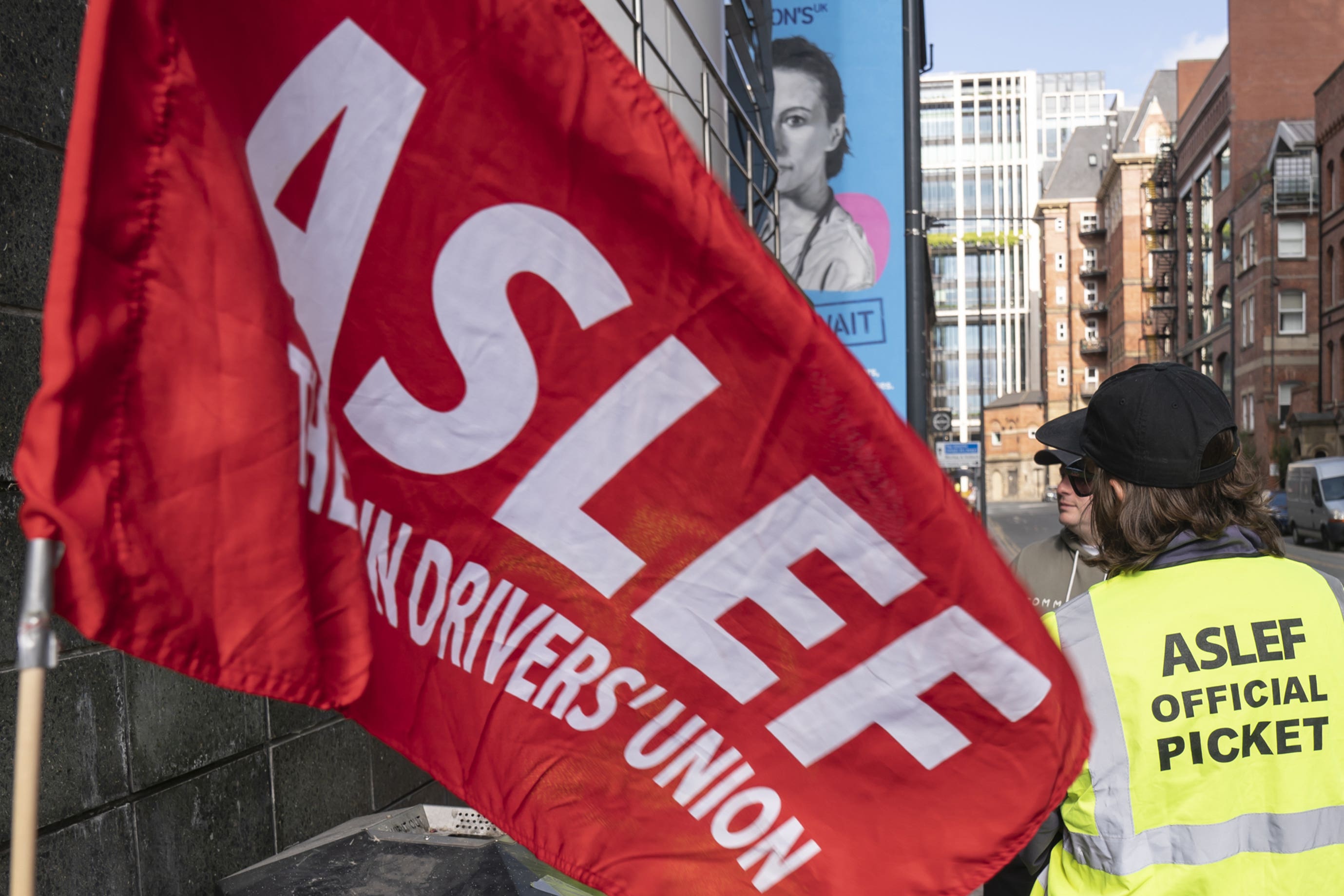Fresh travel misery for rail passengers
Aslef members will stage a third consecutive day of strike action in their long-running pay and conditions dispute.

Your support helps us to tell the story
From reproductive rights to climate change to Big Tech, The Independent is on the ground when the story is developing. Whether it's investigating the financials of Elon Musk's pro-Trump PAC or producing our latest documentary, 'The A Word', which shines a light on the American women fighting for reproductive rights, we know how important it is to parse out the facts from the messaging.
At such a critical moment in US history, we need reporters on the ground. Your donation allows us to keep sending journalists to speak to both sides of the story.
The Independent is trusted by Americans across the entire political spectrum. And unlike many other quality news outlets, we choose not to lock Americans out of our reporting and analysis with paywalls. We believe quality journalism should be available to everyone, paid for by those who can afford it.
Your support makes all the difference.Rail passengers face a third consecutive day of disruption on Thursday because of a strike by train drivers which will again cripple services.
Members of Aslef at LNER, TransPennine Express and Northern Trains will walk out for the day following similar action over the past two days at other operators.
Aslef is embroiled in a near two year long dispute over pay and conditions, which is now the longest ever in the railway industry.
The employers and the Government think we are going to give up and run away. They’re wrong
TransPennine urged people not to attempt to travel as it will not be running any services on its routes.
Disruption is also likely on the day after strike action and services may start later and finish earlier than usual.
Northern said it will also not run any services on Thursday.
LNER will run more than 40 services between London, Edinburgh and West Yorkshire, equivalent to around a quarter of its usual timetable.
Aslef members at 16 train operators are continuing with a week-long ban on overtime which will also cause disruption to services until the weekend.
The Rail Delivery Group (RDG) has invited Aslef to a meeting to try to find some common ground before negotiations can restart, raising tentative hopes of a breakthrough.
The two sides have not met formally for over a year despite a wave of strikes which is causing huge damage to the economy, especially in the hospitality industry.
Mick Whelan, general secretary of Aslef, said pay deals at the 16 Train Operating Companies (TOCs) involved in the dispute ran out in 2019, adding: “Train drivers at these TOCs have not had an increase in salary for five years. That is completely wrong.
“The employers and the Government think we are going to give up and run away. They’re wrong.”
Pubs close to railway stations are suffering losses on strike days, often having to cancel music gigs and other events.
None of the train companies involved in the dispute are using the new law aimed at ensuring a minimum level of service during strikes.
Unions have warned that the law is unworkable and potentially dangerous if rail passengers believe a certain number of trains will run on strikes days.
The RDG said the strikes were inflicting more damage to the rail industry, which it added was receiving up to an additional £54 million a week in taxpayer money.
The Department for Transport said the Transport Secretary and Rail Minister had facilitated a pay offer that would take train drivers’ average salaries up to £65,000 a year, almost twice the UK average.